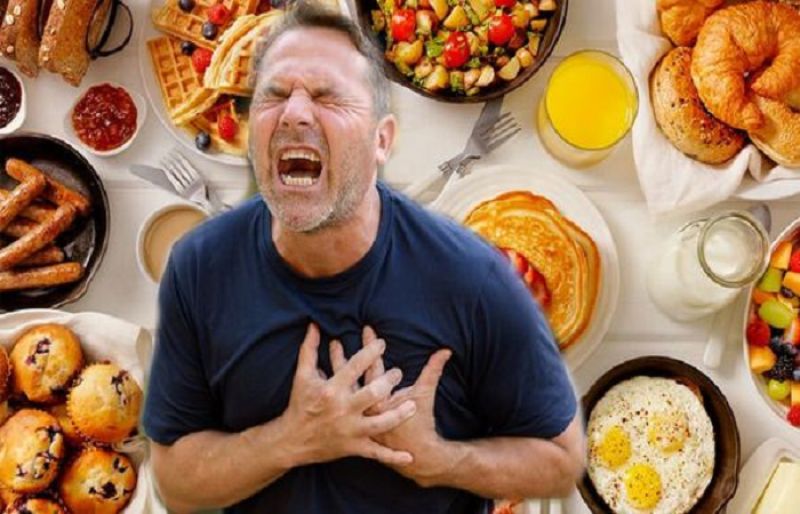Most of us have done it: Late-night noshing while streaming our favorite series. Or maybe it’s that your schedule is so chaotic that you often find yourself eating dinner at 10 p.m. And sure, you know it’s not ideal, but is it actually harmful?
Well, a recent study looked at the link between patterns of eating late and heart disease. “Meal timing regulates the biological clocks that are involved in several circadian functions like regulating blood pressure, metabolism and hormonal secretion,” says Bernard Srour, PharmD, PhD, MPH, professor of epidemiology, INRAE, Inserm, Sorbonne Paris Nord University, co-author of the study.
“Former studies have found possible links between breakfast-skipping and less favorable metabolic health. But not much is known on the link between meal timing and cardiovascular diseases.”
Researchers looked at the habits of more than 103,000 adults to assess whether the times they ate food could have a link with the risk of cardiovascular disease — beyond the nutritional quality of the diet, says Srour. Understanding this possible connection could be helpful as a strategy for protecting heart health.
What the scientists discovered is that having a first meal later than 9 a.m. (compared to earlier than 8 a.m.) and a last meal of the day after 9 p.m. (compared to earlier than 8 p.m.) was associated with a higher risk of cardiovascular events, such as heart attack and stroke, especially among women.
While the results are interesting, it’s too early to make sweeping statements about meal timing and heart health. “Our study shows it could be beneficial to eat early in the morning and stop early in the evening to ensure a long enough nighttime fast duration,” says Srour. “But these are only epidemiological signals that need to be confirmed in other studies and cohorts and randomized controlled trials.”
So, should you eat late at night?
It depends. “It’s not unreasonable. For example, if you ate dinner at 5, and now it’s 9, and you’re hungry, [you should eat],” says Deborah Cohen, DCN, RDN, associate professor in the department of clinical and preventive nutrition science at Rutgers University’s School of Health Professions. “But what you eat and how much you eat matters.”
You should also take stock of why you want to eat at night. “We’re surrounded by food all day so we may not recognize when we’re hungry,” says Jason Ewoldt, MS, RDN, dietitian with Mayo Clinic. “Check in and ask yourself if you’re actually hungry, or you just want to eat because you’re tired, bored or are doing it out of habit because you’re watching your favorite show.”
What are the best foods to eat before bed?
Cohen and Ewoldt suggest snacking on whole, unprocessed foods and snacks (no ice cream, cookies or chips, which are what we often gravitate towards at night!), and opting for smaller portions.
Good choices include foods like these:
Fresh, frozen or canned fruit (in juice, not syrup)
Popcorn (use a microwave popper so you don’t have to add fat)
Low-fat mozzarella cheese stick
Breakfast cereal such as Cheerios or Shredded Wheat
Plain Greek yogurt with berries or a drizzle of honey
Cut veggies and a little hummus
Banana or apple smeared with nut butter
Small serving of nuts
These, and other nutritionist-approved late-night snacks, could also help you sleep better.
What are the best drinks to have before bed?
Avoid anything that contains sugar and caffeine, which can interfere with sleep, including coffee, some types of tea and colas, say Cohen and Ewoldt. The best drinks before bed include:
Water with a citrus slice
Sparkling water with no added sugar
Herbal non-caffeinated teas

